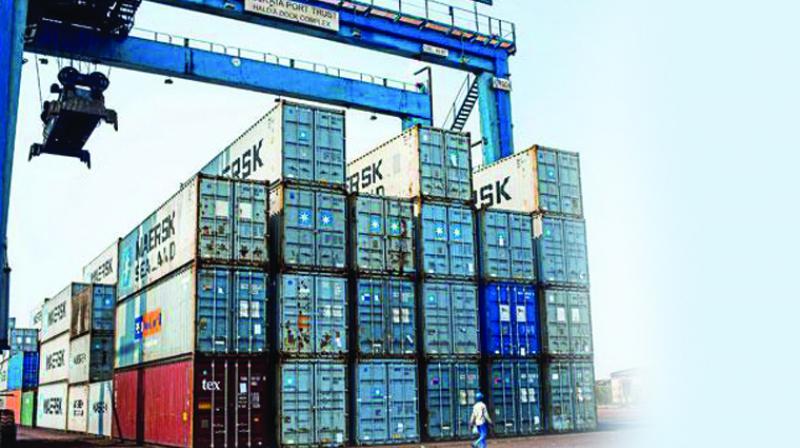Economic survey flags trade deficit, rising anti-globalisation
India's trade deficit increased by 108.2 per cent with high import growth while export growth was moderate.

New Delhi: India's rising trade deficit and protectionist tendencies on the global front are areas to watch for in the short term, according to the Economic Survey released on Friday.
Many trade restrictive measures, including several types of non-tariff barriers (NTBs), restrictions on visas and risk of backlash against movement of persons add to a situation that is of growing concern, it said.
Stating that India's share in global exports has stagnated at 1.7 per cent from 2011 to 2016 with intermittent falls to 1.6 per cent, the survey said there is a need for a well thought out strategy for the country to reach a "respectable share of at least 5 per cent".
In the April-June period 2017-18, India's trade deficit increased by 108.2 per cent with high import growth while export growth was moderate, it said.
The second part of the Economic Survey, which was tabled in Parliament, said however that trade deficit (on customs basis) registered continuous decline since 2014-15, reaching a level of USD 108 billion in 2016-17.
The trade deficit had increased steadily from 2004-05 and reached the highest level of USD 190.3 billion in 2012-13.
"Some green shoots have started to appear on the trade horizon with world trade growth projected at 3.8 per cent and 3.9 per cent in 2017 and 2018, India's exports continuing to be in positive territory for the fourth consecutive month in May 2017 and in double digits in April-May 2017," it said.
However, it added: "Rising trade deficits on the domestic front and rising protectionist tendencies on the global front are things to watch in the short term."
Referring to rise of anti-globalisation in recent years, the survey said tendencies have surfaced with the developments in the US during and after the elections and the Brexit referendum.
People are viewing trade, immigration, and multilateral engagements with some amount of scepticism and are becoming wary of the benefits of globalisation, it said. On rising trade restrictive measures, the survey said there is a rapid rise in recent years of many of such steps including several types of non-tariff barriers (NTBs).
"New restrictions on visas and the risk of a backlash against the movement of persons, add to a situation that is of growing concern," it said.
Exhorting for India's exports to reach a "respectable share" of at least 5 per cent in world exports from 1.7 per cent in 2016, the survey said at present it is very low compared to China's 13.2 per cent.
"To achieve a respectable share of 5 per cent in World exports, India's export growth rate (CAGR) has to be around 26.5 per cent for at least 5 years (2017-2021) assuming that global growth continues at the CAGR of 1.5 per cent (2010-15).
"For this some major strategies and trade policy reforms are needed along with specific measures," said the Survey.
It also outlined roadmap required for attaining the objectives, which include rationalising tariffs; streamlining export promotion schemes as many duties have been subsumed under GST; demand based export basket diversification rather than a mere supply based strategy and developing world-class export infrastructure and logistics on a war footing.
Moreover, it said focus should be on increasing FDI- linked and value added exports, particularly high-tech exports as in China and some ASEAN countries.
Besides, it also called for having free trade pacts and comprehensive economic cooperation agreements with some major nations while actively expanding engagement with BRICS and ASEAN where India enjoys competitive advantage.
It also put forth the idea of a national priority sector for exports and drawing greater participation from the states by linking devolution of funds to states with their export efforts, and formulating a clear-cut agri trade policy.
The survey pointed out that the exercise of mid-term review of foreign trade policy (FTP) 2015-20 has been initiated and is likely to be announced shortly.
Besides the major strategies, it also said cross-cutting trade policy issues and sector-specific issues like making power available at competitive rates, including lower rates for non-peak hours can be a game changer for textiles exports.
Similarly, a big push to electronics hardware exports can be given with a hardware-software combination and moving from assembling to building a robust manufacturing base with a well settled value chain.

